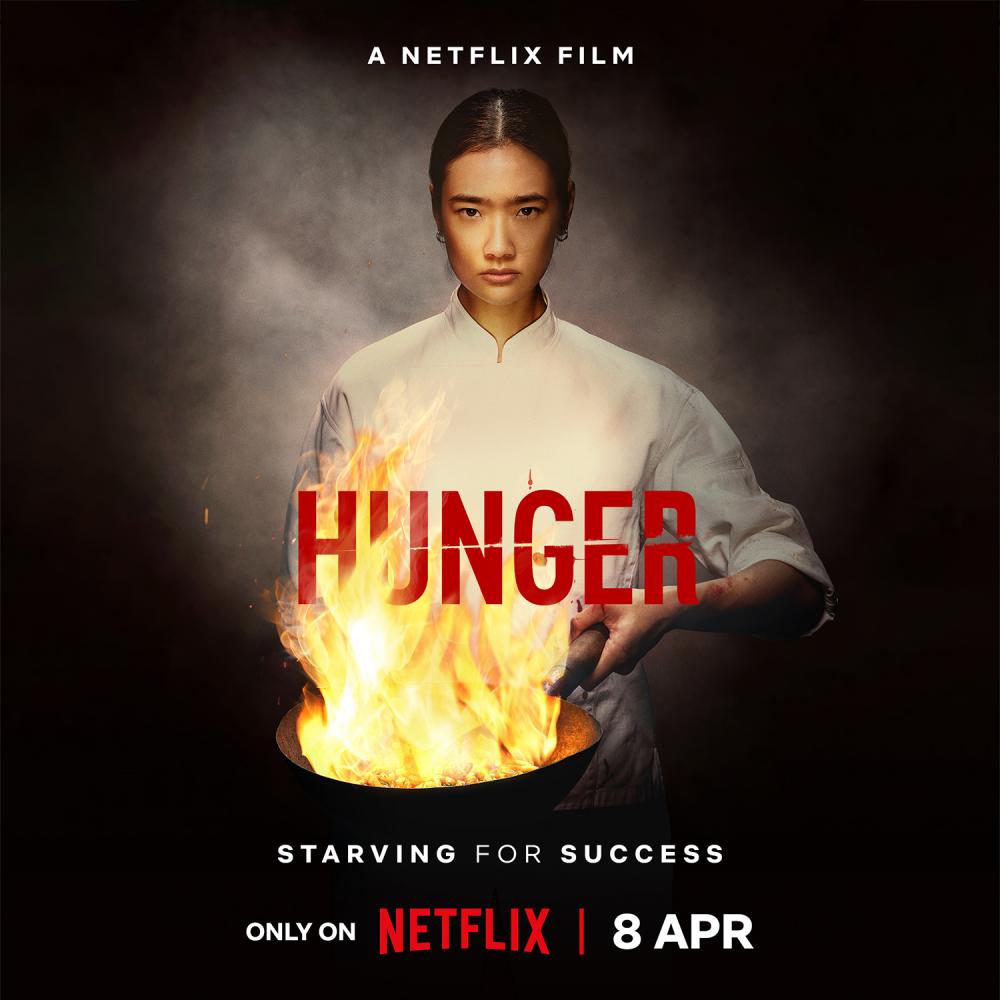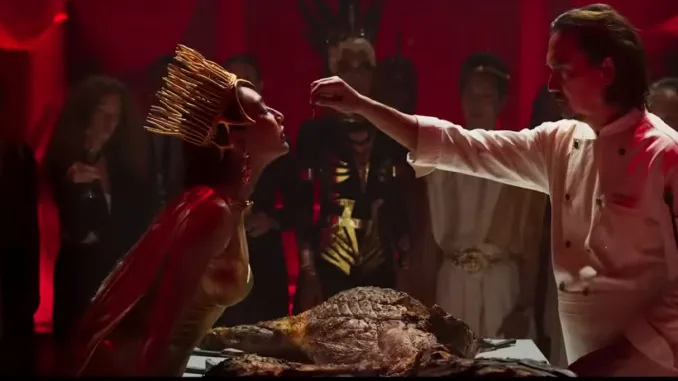

07 Dec ART-718-“Hunger”


Recently, on the “Netflix” platform, I watched the Thai film “Hungry” (2023). It is actually a story about the differences between social classes. About halfway through the film, Chef Paul explains to Aoy (the main character) that what we eat reflects our social status, not the love with which it was prepared. The poor eat to literally survive, while the wealthy seek esoteric experiences in the kitchen – such as the ceremonial preparation of a golden calf and then feeding it to the event organizer from her finger. Aoy is an outsider in all this, brought in from the lowlands of society, for whom food should be, above all, basic, evoking memories and being a distinctive being in itself.


The film confronts these two different schools again and again, although usually not on the culinary level, but by showing the worlds in which the main characters live. When her father is in poor condition and is at risk of death, Aoy must beg the doctors not to let him die. In turn, Park was stabbed by a nervous subordinate and was immediately taken to hospital and saved. Out of gratitude, he tells the nurses that he has no intention of eating hospital food because it is “shit.” The intention of the filmmakers is all too obvious. The problem is that beyond showing that there is a problem, they cannot muster any further comment or attempt to take part in the conversation. When the movie finally ended after nearly 150 minutes, I was equal parts disgusted and surprised by how little actual material there was. It’s as if the entire film was a metaphor for overly fancy fine dining, although I doubt its authors were that cunning.
The journey, during which Aoy gets to know not only the other side of her boss, but also other chefs, the entire restaurant business and, of course, herself, is paid with physical pain and sacrifices when the heroine begins to move away from her loved ones, imperceptibly but systematically heading towards the place she dreamed of. Paradoxically, it turns out that reaching the end of your dreams does not make them come true. It’s worth watching, because “Hungry” is a very universal story about people hungry not so much for good food, but for experiences and success.
The final reflections from this screening can be applied not only to chefs, but also to employees of other professions, but in this film, the behind-the-scenes of cooking wonderful and spectacularly served dishes are simply exceptionally pleasant to watch. The director pays great attention to the visual aspect of his film, building a contrast between a street bar serving fried noodles and rice and parties for stars and politicians dripping with gold. For them, inviting famous chefs is just an addition that increases the splendor and standard of life. However, for those who cook, it is a chance for a new chapter and a big step in their career. Let’s remember, however, that when hundreds of eyes are looking at your dishes, you can get wings, but also completely embarrass yourself. The sentence that Chef Paul says at the end is very important here: – They are not hungry for my dishes. They are hungry for me.


Chef Paul’s cuisine is in fact a lexicon of the pathologies of the elites of the contemporary, junta-ruled Kingdom of Thailand. Their clientele is numerous. From old generals detached from reality who, along with their entourage, will have blood from the angry red sauce on their hands and mouths after a meal; from teenage crypto-millionaires living outside the restrictive anti-drug laws, to the debt-ridden upper middle class and t-pops existing outside of reality
Pathological wealth contrasts with poverty, overcrowded hospitals with enormous bills, perpetually malnourished people, and the lack of any hope for a stable future without a miracle. The cost of one meal for a rich person exceeds many months’ salary of a service worker. The Mongkolsiri-Jaturanrasamee duo uses a kind of international immunity to stigmatize the systemic pathologies of their homeland without fear of censorship or deletion of the project. The title therefore becomes symbolic. Hungry here refers not so much to young chefs who crave professional success, but to literal hunger. The inhabitants’ hunger for freedom, unrestrained artistic voice, and opportunities for social advancement. And finally, simply hunger of people who cannot afford a tasty and nutritious meal.


Sorry, the comment form is closed at this time.